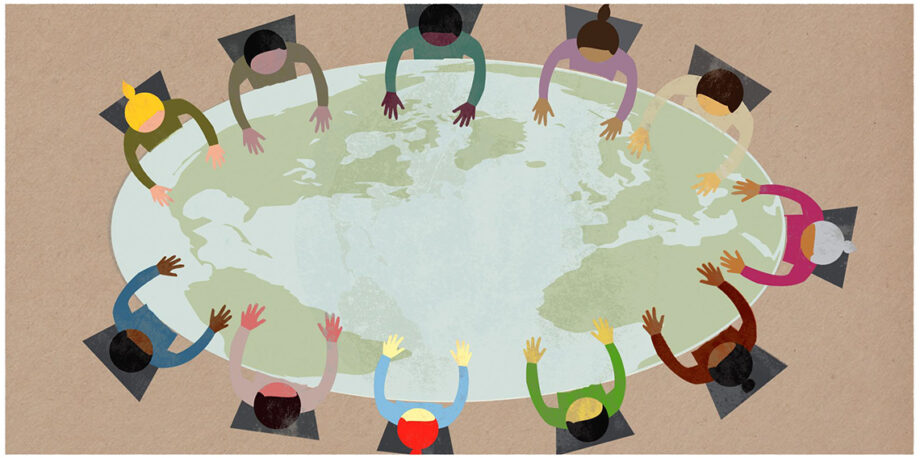December 24, 2015 —  When you look to the year ahead, what do you see? Ensia recently invited eight global thought leaders to share their vision for the environment as it relates to business, culture, ecosystems, energy, food, health, water and the world (see more). In this installment, Alice Korngold, author of A Better World, Inc.: How Companies Profit by Finding Solutions to Global Problems…Where Governments Cannot answers the question: “In 2016, how can businesses transform corporate social responsibility?”
When you look to the year ahead, what do you see? Ensia recently invited eight global thought leaders to share their vision for the environment as it relates to business, culture, ecosystems, energy, food, health, water and the world (see more). In this installment, Alice Korngold, author of A Better World, Inc.: How Companies Profit by Finding Solutions to Global Problems…Where Governments Cannot answers the question: “In 2016, how can businesses transform corporate social responsibility?”
For leading companies, corporate social responsibility has moved from the cubicle to the boardroom. While CSR once referred to philanthropy and volunteering that merely complemented the business, smart companies recognize that CSR can power their core strategies for today’s dynamic global marketplace.
Multinational corporations that lead the way in CSR seek to maximize profits, reduce costs and mitigate risks by finding innovative solutions to the world’s greatest challenges — social, economic and environmental. Ambitious companies understand that the 3 billion people entering the middle class in emerging markets will become valuable consumers and employees. These companies recognize the benefits of building vibrant and prosperous communities in emerging economies through enterprise development, job training, education and health care.
Leading companies also see that by reducing energy costs and mitigating their vulnerability to climate change and ecosystems loss, they will save money and improve their bottom lines. And they recognize they can further profit by creating similar solutions for their customers.
My research for A Better World, Inc. revealed that the companies that are most successful in transforming CSR to a business advantage do three things well.
First, their boards of directors understand the imperative for the company to find solutions to global problems as a strategy to grow shareholder value.
Second, these companies are effective in engaging with stakeholders, including communities in which their employees and consumers live and work, as well as investors, shareholders, consumers, employees, nonprofits and governments.
Third, they realize that they can only thrive in solving global problems by partnering effectively with non-governmental organizations, nonprofits and, often, local governments. Additionally, they recognize the imperative for transparency and accountability to all stakeholders.
To ensure that a company grows shareholder value, the best-qualified board is composed of people from diverse backgrounds and perspectives who have the required business and financial expertise. By including directors who understand the social, economic and environmental challenges facing the world, boards will be best equipped to maximize shareholder value, while also helping to build a better world. ![]()
Editor’s note: The views expressed here are those of the author and not necessarily of Ensia. We present them to further discussion around important topics. We encourage you to respond with a comment below, following our commenting guidelines, which can be found here. In addition, you might consider submitting a Voices piece of your own. See Ensia’s “Contact” page for submission guidelines.
Ensia shares solutions-focused stories free of charge through our online magazine and partner media. That means audiences around the world have ready access to stories that can — and do — help them shape a better future. If you value our work, please show your support today.
Yes, I'll support Ensia!
